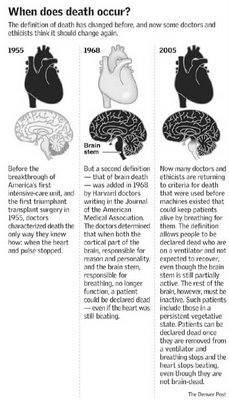Editorial Reviews
From Publishers Weekly:
"Powerful, poignant, deft, this memoir in itself serves as a masterful argument for organ transplantation as Starzl, a retired pioneer in the field, re-creates the intricate history, the stunning breakthroughs and the tragic failures of the controversial surgery. Born in Iowa in 1926 to a nurse mother and a journalist-science fiction novelist father, Starzl as a young doctor showed himself to be tenacious in perfecting kidney and liver transplants, while overcoming medical infighting and resistant to medical and government bureaucracies. Moving from the University of Colorado to the University of Pittsburgh -he established renal transplantation centers at both- he takes us through the advances, from the technique requiring related kidney donors to cadaveric kidney and liver implants to the development of drugs to aid in managing rejection and infection, to programs for finding donors and transporting their organs. Starzl pays tribute to colleagues who either paved the way or helped set the course, while firmly judging those he views as impeders. If he does not lay to rest the philosophical and financial issues surrounding organ transplantation, he succeeds in making us reconsider reservations, reminding us that 'All triumphs in medicine are the forgotten sorrows of past days.'"
Copyright 1992 Reed Business Information, Inc.
From Library Journal:
"Distinguished surgeon Starzl here spends relatively little time on his patients or even in the operating theater. Instead, he focuses on research funding, the politics of hospitals and medical schools, and the great number of people and scientific advances necessary for achieving successful organ transplants. He also discusses the ethics (and dilemmas) of defining brain death, of human experimentation and randomized clinical trials, and of obtaining donor organs. Though he uses his autobiography to settle a few old scores, Starzl is a good writer, skilled at explaining medical complexities in lay language without oversimplifying. He also gives credit to his nonphysician technicians and other medical colleagues. With the current debates on healthcare costs, "rationing," and perceived scientific irregularities likely to continue, this topical book is recommended for collections with strong medical or scientific/technological interests."
Mary Chitty, Biotrends Research, Natick, Mass. Copyright 1992 Reed Business Information, Inc.
From Kirkus Reviews:
"An innovative transplant surgeon looks back on a long and brilliant career. Starzl's 'puzzle people' are not only the patients whose acquisitions of new organs have profoundly altered both their bodies and their minds, but also the physicians whose lives have been changed by participating in the process. Here, the author, who no longer performs surgery but still directs the Transplantation Institute at the Univ. of Pittsburgh, probes -albeit gingerly- at the puzzle of his own life. He draws a vivid portrait of his father, but other family members remain shadows, and he never lets us very far inside his own psyche. In rapid succession, his wife leaves him, his father and sister die, and his son suffers an emotional breakdown; these events must have been devastating, yet, on the page, Starzl's expression of pain is carefully controlled. And so is his recounting of other significant events -career shifts, professional frustrations and triumphs, a new marriage to an abused black woman, and his own heart surgeries. Throughout, the author seems most intent on setting the record straight, generously crediting those whose work helped shape his own, praising those who carry it on, and excusing those who hampered it. Individual patients are mentioned from time to time, and although Starzl clearly cares about them, he avoids sentimentality in telling their tales. Clearly having thought long and hard about the doctor-patient relationship and the place of expensive technology in our financially troubled health-care system, he voices his concerns about patients' rights and the ethical dilemmas posed by obligatory randomized drug- testing. Not an intimate self-portrait but a well-crafted glimpse into a world of science where politics and personalities often clash."
Copyright ©1992, Kirkus Associates, LP. All rights reserved.
I am currently reading this book and will put my comments + book reception online in the near future.







